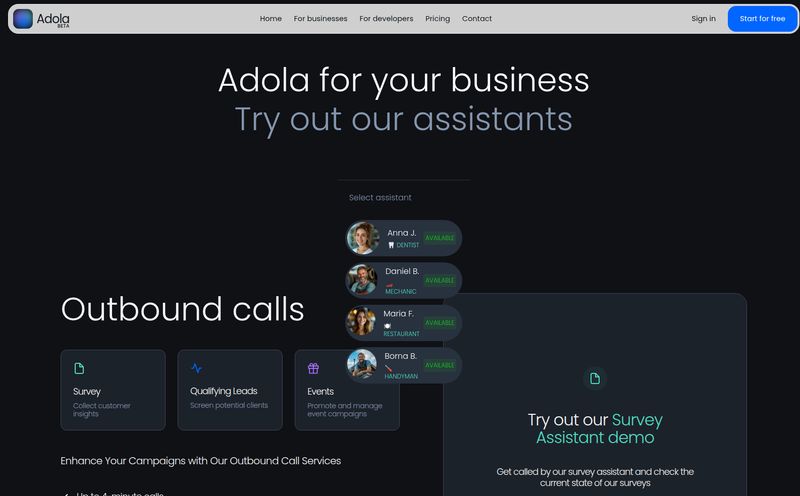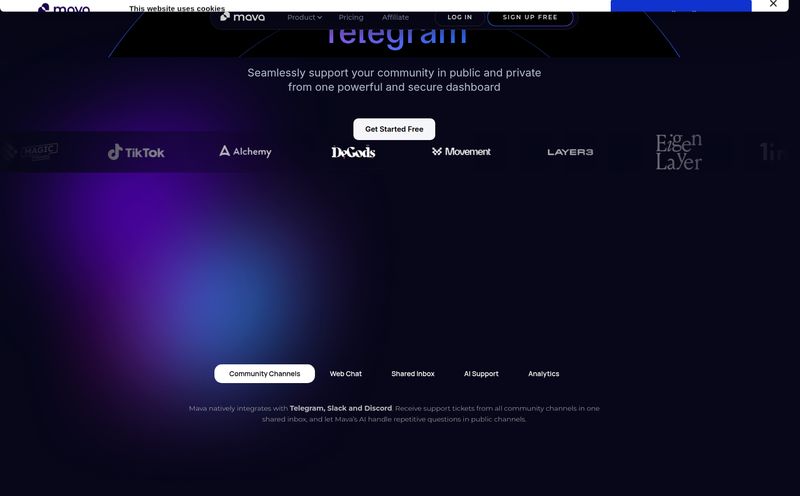I’ve been in this SEO and development game for a while now. I’ve seen trends come and go, tools promise the world and deliver a pamphlet, and I've become, shall we say… a healthy skeptic. So when the buzz around GitHub Copilot started, I mostly rolled my eyes. An AI that writes code for you? Sure. And I’ve got a bridge to sell you in Brooklyn. My code is my craft, and I wasn't about to let some robot backseat-drive my projects.
But the buzz didn't die down. It got louder. Friends at big tech companies were whispering about it. The chatter on Twitter (or X, whatever we're calling it this week) was non-stop. So, I caved. I signed up, installed the extension, and braced myself for disappointment.
Spoiler alert: I wasn’t disappointed. Not entirely, anyway. It's complicated. And that’s what we're going to talk about today. Is GitHub Copilot the revolution we were promised, or just a clever autocomplete on steroids? Let’s get into it.
What Exactly is GitHub Copilot?
Let's break it down simply. Imagine you're coding, and you have a senior developer sitting next to you. Not one that judges your questionable variable names, but one that silently anticipates what you’re trying to do and just… finishes your thoughts. That’s the sales pitch for GitHub Copilot. It calls itself an "AI pair programmer."
Powered by OpenAI's Codex model, which was trained on a gazillion lines of public code from GitHub and other sources, Copilot integrates directly into your editor (like VS Code, JetBrains, etc.). As you type, it suggests not just single words or lines, but entire blocks of code. You can even write a comment in plain English, like "// create a javascript function to fetch user data from an API and handle errors," and… poof. Copilot will often spit out a pretty decent starting point. It's kinda magical, and also a little bit spooky.

Visit GitHub Copilot
The Good Stuff: Where Copilot Really Shines
Okay, so after my initial skepticism faded, I started to see where this thing really pulls its weight. It's not about replacing developers; it's about making our lives less tedious.
Killing Boilerplate and Mundane Tasks
Let's be real, nobody enjoys writing boilerplate code. Setting up a basic Express server, writing a standard fetch request with headers, crafting a regex to validate an email… we've all done it a thousand times. It's the digital equivalent of chopping onions. Necessary, but boring and it makes you cry.
This is where Copilot first won me over. I was setting up a new project and needed a simple debounce function. Instead of digging through old projects or searching Stack Overflow, I just typed function debounce... and Copilot completed the entire, perfectly functional thing. It saved me maybe five minutes. But five minutes, ten or twenty times a day? That adds up. Fast. It's a massive productivity boost for the boring stuff, freeing up your brainpower for the real problems.
More Than Just Autocomplete
The real mind-blowing moments come from its ability to interpret natural language. Writing a comment and having it generate the corresponding function feels like you're conducting an orchestra. It's especially useful when you're working with a new library or framework. You might know what you want to do but not the exact syntax. Copilot often bridges that gap, giving you a working example that you can then tweak and learn from. It’s like having interactive documentation right in your editor. For speeding up the onboarding process on a new tech stack, I've found it to be surprisingly effective.
A Helping Hand in a New Codebase
If you're on the Enterprise plan, things get even more interesting. Copilot can be personalized to your company's own codebase. Imagine joining a new team with a massive, sprawling application. Instead of spending weeks trying to figure out where anything is, you can just ask Copilot Chat, "Where is the user authentication logic handled?" or "Explain this pull request to me." This feature alone could drastically cut down the time it takes for new hires to become productive. It's a huge selling point for larger organizations.
The Not-So-Good Stuff: The Catch with Copilot
Alright, it’s not all sunshine and automatically generated code. Using Copilot comes with some serious caveats, and ignoring them is a recipe for disaster. This is where the "healthy skeptic" in me comes back out.
The "Trust Me, Bro" Code Suggestions
Copilot's suggestions can be… confidently incorrect. It will generate code that looks plausible, feels right, but has a subtle bug or a massive security vulnerability hidden inside. Because it learned from public code—all of it, the good, the bad, and the ugly—it doesn't have a perfect sense of best practices. It might suggest a deprecated method or use a package with known security issues.
This is why the name "Copilot" is so perfect. You are still the pilot. You are in charge. You cannot just blindly accept its suggestions. You have to read them, understand them, and validate them. Good code review practices and a solid testing suite are not optional when Copilot is in the mix; they're an absolute necessity. If you're a junior developer still learning the ropes, this can be a dangerous crutch.
The Copyright Elephant in the Room
This has been a hot-button issue since day one. If Copilot is trained on public code, including code with various open-source licenses, what are the implications of using its suggestions in your proprietary project? It's a legal and ethical minefield. There have been instances of Copilot spitting out large chunks of code verbatim from public repositories, license and all.
To their credit, GitHub has tried to address this. The paid plans (Business and Enterprise) include an IP Indemnity policy and a filter that attempts to block suggestions matching public code. Is it perfect? Probably not. But it shows they're aware of the problem. It's just something you and your legal team need to be aware of.
Let’s Talk Money: GitHub Copilot Pricing
So what does this magical, slightly dangerous assistant cost? The pricing is actually pretty straightforward and, in my opinion, quite reasonable for the value it provides.
| Plan | Price | Best For |
|---|---|---|
| Copilot Individual | $10 / month or $100 / year | Freelancers, indie developers, and hobbyists. It's also free for verified students, teachers, and maintainers of popular open source projects, which is amazing. |
| Copilot Business | $19 / user / month | Small to medium-sized teams. This plan adds important features like org-wide policy management and that crucial IP indemnity protection. |
| Copilot Enterprise | $39 / user / month | Large organizations. This is the whole shebang, with chat personalized to your codebase, documentation search, and other high-powered features for team collaboration. |
For a solo developer, $10 a month for the time it saves is a no-brainer. If I bill even one less hour to a client because Copilot helped me get a task done faster, it's already paid for itself several times over.
So, Is GitHub Copilot Actually Worth It?
After all this, we land at the big question. My answer? A resounding yes, but...
GitHub Copilot is not a tool you can just switch on and turn your brain off. It's a force multiplier. It makes a good developer faster. It helps a curious developer learn more quickly. But it can also reinforce bad habits for an inexperienced developer or introduce subtle bugs for a careless one. It’s like a brilliant, eager-to-please junior dev you've hired for ten bucks a month. They can do amazing work and take a huge load off your plate, but you still have to manage them, review their work, and ultimately, you're the one responsible for the final product.
If you go in with that mindset, understanding its strengths and, more importantly, its weaknesses, GitHub Copilot can absolutely change the way you code for the better. It's one of the few tools I've added to my workflow in recent years that I would genuinely miss if it were gone.
Frequently Asked Questions about GitHub Copilot
What is GitHub Copilot?
It's an AI-powered code completion tool, or "AI pair programmer," that integrates with your code editor. It suggests entire lines or blocks of code as you type, and can even generate code from natural language comments.
Is GitHub Copilot free?
It is not free for general commercial use, but it's available for free for verified students, teachers, and maintainers of popular open-source projects. For everyone else, there are paid plans like Individual, Business, and Enterprise.
Can Copilot write insecure code?
Yes, absolutely. Since it learns from a vast amount of public code, some of which is insecure, it can suggest code with vulnerabilities. It's critical to always review and test the code Copilot suggests.
Which IDEs does Copilot work with?
It integrates with most of the popular editors, including Visual Studio Code, Visual Studio, Neovim, and the suite of JetBrains IDEs (like WebStorm, PyCharm, etc.).
Does GitHub Copilot steal code?
This is a complex topic. Copilot learns from public code, and there's an ongoing debate about the ethics and legality. To mitigate this, GitHub offers a filter to block suggestions that match public code and provides IP indemnity for its Business and Enterprise customers.
Is Copilot better for some programming languages than others?
Generally, yes. It performs best with languages that have a huge presence in public repositories, like Python, JavaScript, TypeScript, Ruby, and Go. It may be less effective with more obscure or newer languages that have a smaller public code footprint for it to learn from.
A Glimpse into the Future
Whether you love it or hate it, tools like GitHub Copilot aren't going away. They represent a fundamental shift in how we might approach software development. It's a move away from pure memorization of syntax and toward a greater focus on architecture, logic, and problem-solving. I, for one, am here for it. It's an exciting, slightly chaotic new frontier, and I can't wait to see what comes next. Just remember to keep your wits about you.



